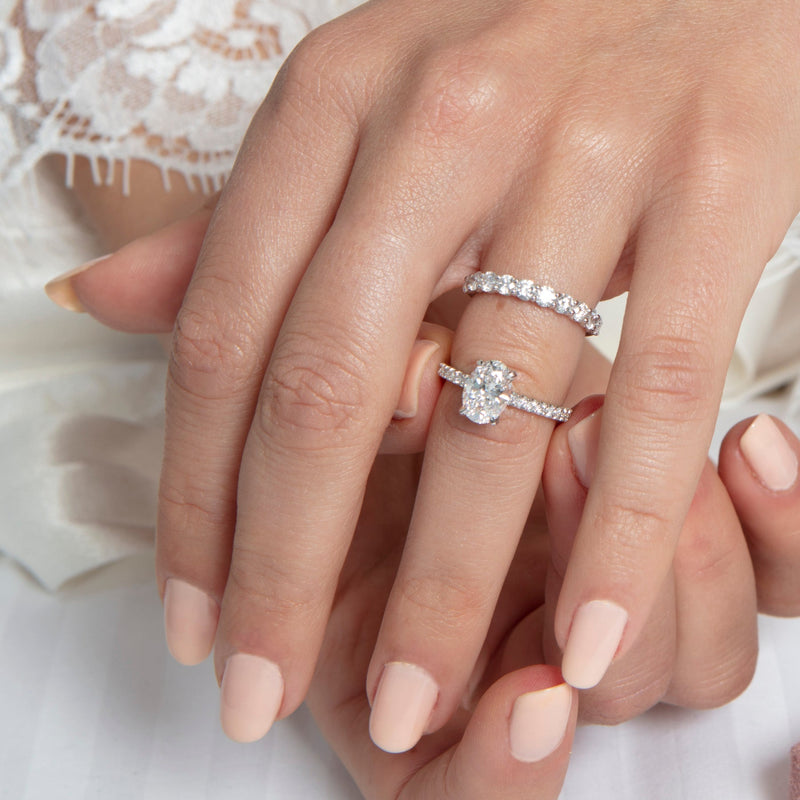In the realm of lab-grown diamonds, choosing the right certification body is essential for ensuring the quality and authenticity of your purchase. Two prominent institutions, the International Gemological Institute (IGI) and the Gemological Institute of America (GIA), stand out for their detailed grading frameworks. This article gives a top to bottom comparison of igi vs gia certifications, offering a thorough understanding of what separates them and how they influence your diamond-buying decisions.
Understanding Lab-Grown Diamonds
Lab-grown diamonds, also known as synthetic or refined diamonds, are created using sophisticated innovation that emulates the natural processes of diamond formation. These diamonds share the same physical and chemical properties as natural diamonds, yet are delivered in a controlled lab climate. As the popularity of lab-grown diamonds develops, so does the requirement for accurate and transparent grading frameworks to guarantee shoppers make very much informed decisions.
Outline of IGI Certification
The International Gemological Institute (IGI) is a prominent gemological laboratory with a solid reputation for grading both natural and lab-grown diamonds. IGI’s certification process involves a detailed analysis of several vital attributes of the diamond. Their grading report includes far reaching evaluations of cut, color, clarity, and carat weight, and also indicates whether the diamond is lab-grown or natural.
IGI has a significant spotlight on lab-grown diamonds, offering specialized reports that address the exceptional characteristics of these pearls. The institute’s grading criteria are aligned with industry standards, aiming to give a reliable assessment of the diamond’s quality.
Outline of GIA Certification
The Gemological Institute of America (GIA) is broadly perceived for its rigorous and logical approach to diamond grading. GIA’s certification process encompasses a thorough analysis of the diamond’s cut, color, clarity, and carat weight, along with additional attributes like fluorescence and potential treatments. GIA’s grading reports are known for their accuracy and profundity, providing shoppers with a clear and detailed understanding of the diamond’s quality.
GIA also offers specialized certification for lab-grown diamonds, maintaining the same exclusive requirements that it applies to natural diamonds. The institute’s obligation to precision and transparency guarantees that its grading reports are exceptionally regarded in the industry.
Comparing IGI and GIA Certifications
Grading Consistency
With regards to grading consistency, both IGI and GIA are profoundly regarded in the gemological local area. GIA is prestigious for its stringent grading criteria and precision, which have earned it a reputation as the industry benchmark. The institute’s grading reports are generally perceived and trusted by buyers and professionals alike.
IGI also maintains exclusive requirements in its grading practices. While IGI’s reports are thought of as reliable, there may be slight variations in grading compared to GIA. These distinctions can affect the apparent value and quality assessment of a lab-grown diamond.
Reporting Transparency
GIA is noted for its transparency in reporting, offering detailed and straightforward information about each diamond’s characteristics. This degree of transparency assists purchasers with making informed decisions by providing a far reaching understanding of the diamond’s attributes and any potential treatments.
IGI also gives detailed reports, however the degree of transparency may vary marginally compared to GIA. While IGI’s reports are thorough, a few shoppers may incline toward the additional clarity and profundity offered by GIA’s grading framework.
Market Acknowledgment
GIA’s reputation expands globally, and its certification is often regarded as the gold standard in the diamond industry. The institute’s grading reports are broadly accepted and valued, making GIA-confirmed diamonds profoundly pursued by customers and industry professionals.
IGI is also all around regarded, particularly for its attention on lab grown diamonds. The institute’s certification is regarded, yet it may not have the same degree of universal acknowledgment as GIA. This can impact how IGI-confirmed diamonds are seen in the market.
Purchaser Certainty
Both IGI and GIA certifications offer an elevated degree of certainty to purchasers. GIA’s well established reputation for accuracy and reliability instills areas of strength for an of trust among purchasers. IGI also gives a reliable certification, however a few buyers may prioritize GIA’s industry-leading status while making their purchasing decisions.
Conclusion
In summary, both the International Gemological Institute (IGI) and the Gemological Institute of America (GIA) offer valuable certification administrations for lab-grown diamonds. Each institution has its assets, with GIA being famous for its rigorous standards and global acknowledgment, while IGI gives specialized and reliable grading to lab-grown diamonds.
Understanding the distinctions among IGI and GIA certifications can assist buyers with making more informed decisions while purchasing lab-grown diamonds. Whether you pick an IGI-confirmed or GIA-guaranteed diamond, the two certifications give essential insights into the quality and authenticity of your pearl, ensuring a satisfying and informed buying experience.



